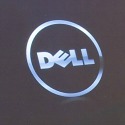
According to Dennis Hoffman, SVP and GM of Dell Technologies' telecom business, there is no one company or association that can stop the trend toward open RAN.
"The bigger picture isn't so much about any one company, nor is it necessarily about any one alliance or standards effort, because the mega-trend is marching on, and I don't think it's going to slow," he said. "If anything, we'll see a typical 'S' curve where it will bounce along at a certain rate and hit an inflection point and then it will accelerate pretty rapidly."
Hoffman said the trend toward virtualized radio access networks (RANs) with open architectures is almost inevitable, given similar transitions in data centers and core networks.
"It is so much bigger than one company," he said of the trend. "The ecosystem is developing to create options."
Nokia and Ericsson tapping the brakes
Hoffman's comments are in response to recent warnings from Ericsson and Nokia regarding the O-RAN Alliance, a standards association developed to help push open RAN. Nokia said it would halt its work in the O-RAN Alliance due to concerns among US officials of Chinese activities in the group, potentially affecting national security. Ericsson, another big RAN equipment vendor, agreed that the situation will "hamper progress" within the O-RAN Alliance.
"It's not surprising that some of today's networking equipment vendors are not fans of O-RAN, the way it is described, because it really pressures their business model," Dell's Hoffman told Light Reading. "It's simply in their economic interest to suggest that it's hard and it won't take place, or it won't take place soon. But as we're seeing it, across the entire industry, there's tremendous innovation going into every level of opening up the network."
And what of Dell, a company based in the US and a firm proponent of American work in the open RAN movement? "We're not pulling back from our work with the O-RAN Alliance," Hoffman said. "There's probably a half dozen to a dozen groups that have formed" around open RAN. "We're participating in all of them."
Dell is one of numerous companies hoping to use the open RAN trend to generate new sales into the telecom industry. The company is primarily working to get mobile network operators like Dish Network to purchase its servers and install them into their edge computing nodes. But Hoffman said that's just the tip of Dell's strategic spear – he said the company ultimately hopes to sell open RAN software and services, including prime integration services that would position Dell as an operators' first point of contact in assembling an open RAN network.
"It's really quite natural for us," Hoffman said of Dell's potential role as an integrator. "It's pretty well lined up with what we're doing."
Driven by operators
The push toward open RAN is primarily being driven by wireless network operators like AT&T and China Mobile. It's a trend intended to create commonly accepted standards connecting the various elements inside a wireless network, with the goal of allowing operators to mix and match components from a variety of vendors. Thus, the end result could give rise to a multivendor, Lego-style wireless network where each piece of the system snaps in with those around it via standard connections.
That would represent a significant change to the wireless networks of today, which are often built on hardware supplied by one vendor that cannot work with similar hardware from a different vendor.
Dell isn't the only company unfazed by the new open RAN warnings by Ericsson and Nokia. According to FierceWireless, research and consulting firm Dell'Oro Group recently raised its open RAN revenue forecast by 50%, citing strong momentum behind the technology in the first half of 2021.
Dell'Oro analyst Stefan Pongratz told the publication that "it is unlikely that these derailments will be enough to impact the overall trajectory of the movement."
Related posts:
— Mike Dano, Editorial Director, 5G & Mobile Strategies, Light Reading | @mikeddano
About the Author(s)
You May Also Like











